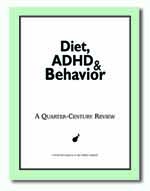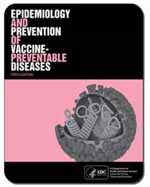 Intestinal symptoms – both diarrhea and constipation – seem to go along with symptoms of both ADHD and autism. For some, their ADHD symptoms could be due to undiagnosed celiac disease even when there are no intestinal symptoms. For others there is an overgrowth of yeast which can cause intestinal distress. Yet others may have lactose intolerance which can cause painful gas, flatulence, and bloating (lactose intolerance is the inability to digest lactose, or milk sugar, not to be confused with sensitivity to casein, which is a milk protein).
Intestinal symptoms – both diarrhea and constipation – seem to go along with symptoms of both ADHD and autism. For some, their ADHD symptoms could be due to undiagnosed celiac disease even when there are no intestinal symptoms. For others there is an overgrowth of yeast which can cause intestinal distress. Yet others may have lactose intolerance which can cause painful gas, flatulence, and bloating (lactose intolerance is the inability to digest lactose, or milk sugar, not to be confused with sensitivity to casein, which is a milk protein).
Crohn’s disease is a chronic inflammatory disease of the intestines. It primarily causes ulcerations (breaks in the lining) of the small and large intestines, but can affect the digestive system anywhere from the mouth to the anus. It is named after the physician who described the disease in 1932.
Crohn’s disease is related closely to another chronic inflammatory condition that involves only the colon: ulcerative colitis. Together, Crohn’s disease and ulcerative colitis are frequently referred to as inflammatory bowel disease (IBD)
The Diet Connection
Some Feingold members report that in addition to ADHD, their children had either chronic diarrhea or chronic constipation – or a mixture of both – and that on the Feingold diet these symptoms resolved.
Back in 1989, Antico reported that according to his observations, he could “draw the conclusion that food additives intolerance may be a major factor in the pathogenesis of IBS (Irritable Bowel Syndrome).”
In 2002, Sasaki et al showed that all seven of the food dyes he studied “induced DNA damage in the gastrointestinal organs at a low dose.”
- Antico 1989: Irritable Colon Syndrome in Intolerance to Food Additive – MedLine
- Sasaki 2002: The Comet Assay with 8 Mouse Organs: Results with 39 Currently Used Food Additives – MedLine || Full Text || Get Password




















